Latest News
A Goal We Can Agree On: Keep Guns Out of the Wrong Hands
Posted by on April 7, 2014 at 5:50 PM EST
Chief Jim Johnson is being honored as a Gun Violence Prevention Champion of Change.
For law enforcement, preventing gun violence is not a political or partisan issue; it is a grave matter of public safety. We know from experience that there is an urgent need to keep guns out of dangerous hands—a goal everyone should be able to support.
I am Chief of Police for Baltimore County, Maryland, and also Chair of the National Law Enforcement Partnership to Prevent Gun Violence (“the Partnership”). We are an alliance of nine national law enforcement leadership organizations working together to reduce gun crime against our citizens and our officers. The Partnership includes:
- Commission on Accreditation for Law Enforcement Agencies, Inc. (CALEA);
- Hispanic American Police Command Officers Association (HAPCOA);
- International Association of Campus Law Enforcement Administrators (IACLEA);
- International Association of Chiefs of Police (IACP);
- Major Cities Chiefs Association (MCCA);
- National Association of Women Law Enforcement Executives (NAWLEE);
- National Organization of Black Law Enforcement Executives (NOBLE);
- Police Executive Research Forum (PERF); and
- Police Foundation (PF).
Every member of the Partnership agrees that public safety is served when gun sales involve a background check. For the last 20 years, the landmark Brady Law has required nationwide background checks for gun purchases through federally licensed firearm dealers. Unquestionably, this law has been a tremendous public safety success.
The Brady Law focuses on a specific, critical goal—preventing gun sales to those not legally permitted to possess them, including criminals and the dangerously mentally ill. Since the Brady Law was enacted in 1994, background checks have stopped more than two million prohibited persons from buying firearms. While there is no way to quantify how many lives have been saved since the law took effect, it is obvious that more than two million guns in the wrong hands is a recipe for more than two million disasters.
But the Brady Law applies only when a sale occurs through a federally licensed dealer, and the fact is that up to 40 percent of firearm purchases occur between private parties where no background check is required under federal law. As we in law enforcement have been warning, that is tantamount to allowing 40 percent of passengers to board an airplane without undergoing any screening. The honor system would not work at airports and does not work when it comes to buying guns.
As public safety professionals, we see daily the devastation caused by gun crime. Across America, gun violence claims more than 30 lives each day. Law enforcement officers not only risk their own lives to protect the public, they are increasingly the targets of gun violence. Ambushes of police have risen dramatically and were the leading cause of fatal shootings of officers for two years in a row, in 2012 and 2013. This cannot continue.
We may not be able to eliminate all gun violence, but that shouldn’t mean we do nothing.
I am honored to receive this recognition as a White House Champion of Change. Speaking out on solutions to the problem of gun violence is something I feel compelled to do as a public safety professional. To make my community and communities across the nation safer, I have been doing all I can to better inform the public debate and share law enforcement’s expertise with the public and policymakers—in my own community, in Maryland, and nationally.
All Americans, including our youngest citizens, should be able to grow up and fulfill their roles in the great human experience. None of us can fail them. We should take the obvious and reasonable step of requiring background checks for all sales. This is not just common sense—lives depend on it.
Jim Johnson is the Chief of Police for Baltimore County, MD and Chair of the National Law Enforcement Partnership to Prevent Gun Violence, a coalition of nine national law enforcement leadership organizations concerned about the unacceptable level of gun violence in the U.S.
Learn more aboutDr. Deborah Birx Sworn In as New U.S. Global AIDS Coordinator
Posted by on April 4, 2014 at 3:51 PM ESTEd. note: This is cross-posted from AIDS.govDr. Deborah Birx was sworn in today as the new Ambassador at Large and U.S. Global AIDS Coordinator to lead all U.S. Government international HIV/AIDS efforts. Ambassador Birx now oversees implementation of the U.S. President’s Emergency Plan for AIDS Relief (PEPFAR), the largest commitment by any nation to combat a single disease in history, as well as all U.S. Government engagement with the Global Fund to Fight AIDS, Tuberculosis and Malaria.“I am honored and humbled to lead PEPFAR into a brand new chapter to achieve an AIDS-free generation through shared responsibility, accountability, and impact.” said Ambassador Birx.Ambassador Birx is a renowned medical expert in the field of HIV/AIDS. For over three decades, her career has focused on HIV/AIDS immunology, vaccine research, and global health. Since 2005, she has served as Director of the Division of Global HIV/AIDS at the U.S. Centers for Disease Control and Prevention (CDC) leading PEPFAR implementation.Prior to the CDC, Ambassador Birx, a proud Army veteran, having risen to the rank of Colonel in the US Army, served at the Department of Defense as Director of the U.S. Military HIV Research Program at the Walter Reed Army Institute of Research. In that role, she led development of the Thai vaccine trial which became the first clinical HIV/AIDS research study to show the potential that a vaccine could protect against HIV. She also served as an Assistant Chief of the Hospital Immunology Service at Walter Reed Army Medical Center.PEPFAR now directly supports 6.7 million people globally on life-saving antiretroviral treatment. In Fiscal Year 2013, PEPFAR also supported HIV testing and counseling for more than 57.7 million people, providing a critical entry point to prevention, treatment, and care. Of those receiving PEPFAR-supported HIV testing and counseling, more than 12.8 million were pregnant women. For the 780,000 of these women who tested positive for HIV, PEPFAR provided antiretroviral medications to prevent mother-to-child transmission of the virus. Due to PEPFAR support, 95 percent of these babies were born HIV-free (including 240,000 that would otherwise have been infected).Learn more aboutBridging: Two Nations and Two Languages
Posted by on April 4, 2014 at 10:27 AM EST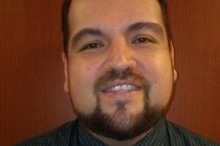
Armando Chavez is being honored as a Cesar Chavez Champion of Change.
As the principal of Columbus Elementary School, I have the honor of serving a diverse population that merits a leader who envisions greatness and provides an opportunity in which the students’ needs are seen as a priority.
The majority of the students who attend our school are American citizens who live across the border in Mexico. I consider myself a service provider who is here to provide any type of resource to stakeholders in the school who are in need. The Deming Public School District plays an integral part in the vision of our school. Together, we foster positive attributes to receive the results we are looking for, both academically and personally.
Working with a dynamic staff who is as dedicated to the students as the administration is is essential. I could not accomplish one task without the support of a faculty who understands the larger picture of being supporters of a community who in turn depend on the school for leadership. Since the school is seen as the heart of the community, we must provide services above and beyond the status quo.
Providing services for students who are poverty stricken must be in place in order to satisfy the basic needs of our students. We work in conjunction with programs such as the Roadrunner Backpack Program, Rio Grande Education Cooperative, and our after school program collaboratively funded by the county of Luna, City of Deming, and The Deming Public School District. These resources allow me to further enhance the educational setting for all students in our school.
Our area has difficulty communicating with families across the border. In some cases parents are not able to cross, but the child crosses to receive an appropriate education. Making families feel comfortable knowing their children are safe allows me to further build on the relationships needed to fully assist with our students’ progress. Initiating Skype conferences between both the parents and the school has helped us bridge the gap of communication. When parents need to discuss issues with teachers, a local business has volunteered their facilities to ensure this process can continue seamlessly.
It is with great humility that I share my endeavors on the path of receiving this honor. My teams at the school and district level have given me the opportunity to enhance the school and touch the lives of our children. So many dedicated individuals allow me to soar; thus reaching new levels of achievement and triumph. Students are the focus; growing and learning will lead them to be productive members of any community in which they choose to live.
Armando Chavez serves as principal of Columbus Elementary School (Deming Public Schools) in Columbus, NM. The school serves a population in which 99% of the students enter as monolingual Spanish language students. Most of this unique group of students were born in the United States and live across the border in Mexico. During his tenure as the leader of the school, he has emphasized the importance of education.
Learn more aboutA Life Reinvigorated: A Sense of Purpose in Teaching Immigrants
Posted by on April 4, 2014 at 10:14 AM EST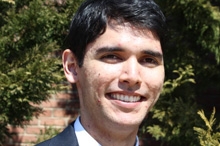
Xavier Muñoz is being honored as a Cesar Chavez Champion of Change.
I am honored to be selected as a White House Champion of Change on a day that celebrates Cesar Chavez, whose life of service continues to inspire people to pursue empowerment.
I impact the community through AmeriCorps, the flagship program of the Corporation for National and Community Service. As one of several AmeriCorps members with the Literacy Council of Northern Virginia (LCNV), I teach classes of adult immigrants to use English as a tool for directing their own American journey. I also make it easier for volunteer instructors and class aides to provide quality instruction by taking care of administrative duties and providing sensitivity training on what beginning learners may experience in the classroom.
But I didn’t get into AmeriCorps service to give back to the community. The choice to become a full-time volunteer was a self-involved endeavor much like my time in undergrad. I pursued courses of study based primarily on what I was previously good at and what had a clearer career path. But early academic progress spiraled into incomplete assignments not submitted and anxiety-driven withdrawals from class participation that nearly brought me to a standstill. After petitioning to avoid academic suspension, I graduated through transfer credit a year later than expected.
“Should” and “ought to” dragged me forward for the following year and a half. There was no heart to follow until I found myself spending two evenings a week helping a Jamaican man to read. I would come home ablaze with reflections on how I could make the next day even better. Encouraged by this budding interest, I joined LCNV to further learn how to teach adults.
Most of the 1500+ LCNV learners a year are immigrants. Some are high-skilled workers; many have no more than a few years of education. Some have been in the U.S. for years; some, only for days. I’m awed by their courage. I think to my father, who came to this country as a child in a three-generation Colombian family. And I think to my mother, who came to this country knowing only my father. Because of how hard my parents have worked for respect and for better lives for my brother and me, I see in my students how important education is for them and their families.
In one of my classes, I have students from the Central African Republic, China, Iran, Mexico, Somalia, and Vietnam. I feel empowered by teaching when they say how very happy they are after we get library cards and practice finding books, when they look to each other rather than to me for support in class (thereby proving that English is an international language—not just mine but theirs, too). That I can share in their success is what propels me forward. AmeriCorps service really has given purpose and direction to my future. And it is for these adults that I will pursue a graduate degree in teaching.
So I hope that this Champion of Change recognition brings to the national consciousness the potential that radiates in the lives of adults with low levels of literacy and English proficiency and that this recognition calls to action those who recognize the needs of adult education and the broader impact it has on our families and communities.
Xavier Munoz is currently serving a second year as an AmeriCorps member with the Literacy Council of Northern Virginia, a non-profit community-based literacy organization that specializes in providing low-level ESOL and literacy instruction to adults so as to them to participate more fully and confidently in their communities.
Learn more aboutCommunity Service Honors Those Who Have Come Before Us, and Helps to Prepare the Path for Those Who Will Come After Us
Posted by on April 4, 2014 at 10:06 AM EST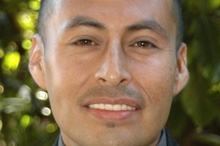
Luis Urrieta is being honored as a Cesar E. Chavez Champion of Change.
Service to communities is not a choice for some, but an indispensable part of the fabric of daily life. When there are communities that we are committed to, then service and advocacy makes sense.
To me, service means contributing to a larger mission for social justice and educational equity. Service adds to a larger collective struggle to work toward fulfilling the promises and ideals of this great nation.
I first learned about César Chávez and his struggle in 1990 when a group of fellow Chicano students dumped a large bowl of grapes that were being served to us in the dorm cafeteria in the trash. This action was part of a symbolic protest in solidarity with Chávez and the United Farm Workers. At the time, I was an entering freshman in college and Chávez, along with my parents and extended family became an inspiration to me for a life of service. I realized that my work in life would revolve around giving back to Latina/o communities, especially immigrant communities, and raising awareness about Latina/o issues with a wider audience.
My professional, academic, and community service work in education has been dedicated to raising awareness and valuing Latina/o immigrant family and community knowledge. I have focused much of my energies on the importance of nourishing and supporting strong ethnic and linguistic identities in Latina/o children and youth, while promoting and creating the conditions for high academic achievement. My service has been primarily centered on mentoring, teaching, and cultivating leadership in Latina/o children and youth.
As a former bilingual middle school teacher in Los Angeles I was dedicated to working with immigrant and first generation students. Through critical pedagogy and extensive family and community involvement, many of my students became very personally and academically successful, and were able to navigate the higher education system despite their undocumented status. This was not due to me, but to larger collaborative efforts between the students, teachers, family, and community that I was then a part of. Collectively we subsequently published some of the undocumented student testimonios to help raise educators’ awareness about their status and to disrupt the negative perceptions of undocumented youth.
For the past ten years, my work with teachers as a teacher educator has also focused on engaging in conversations and dialogue about Latino/a students, both our long and recent history in the U.S., the issues we face, including our diversity as a community, and the assets we bring. With undergraduate students I instill and encourage a need for service learning projects, volunteering, tutoring, mentoring, and engagement with Latina/o families and communities.
I have done this by creating opportunities for local Latina/o community involvement including work with community centers, non-profits, churches, and through workshops, internships, and exchange programs abroad in Mexico and Guatemala, with strong service learning components. My goal is to instill in young adults the motivation not only to achieve professionally, but to also align those professional goals and commitments to communities, especially communities in need.
For the last two years, along with university student volunteers/interns, I have also coordinated a collaborative after school program, Cultura en Acción—Culture in Action, for upper elementary school students. This program creates a space for Latina/o ethnic and cultural awareness by centering family and community knowledge while promoting high academic achievement and 21st century skills and technology. This program enjoys success due to the level of engagement and commitment of university student volunteers, interns, and the children in the program and their families.
The legacy of community service honors those who came before us, and it is not a lone endeavor, but a collective project of hope, love, and cooperation. The legacy of service also helps prepare the way for those who will come after. Service, to me, remains fundamental to the mission of social justice and the public good.
Luis Urrieta, Jr., is Associate Professor and Program Director for the Cultural Studies in Education Program (The University of Texas—Austin), and Coordinator of the Cultura en Acción—Culture in Action after school program in Austin, TX.
Learn more aboutInspired by Change. Transformed Through Service.
Posted by on April 4, 2014 at 9:58 AM EST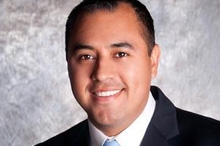
Germain Castellanos is being honored as a Cesar E. Chavez Champion of Change.
The work of Cesar Chavez has given me an example of an American who has dedicated his life to service. I feel that the spirit of service has been cultivated in me much like it was in Cesar Chavez. To serve is to seek the prosperity and well-being of your community before your own.
Growing up amidst gang-related violence and drugs, I had a front-row view of poverty in the U.S. As a youth hanging out with the wrong crowd, I found myself on the wrong side of the law, but at the age of 21 had cleaned up my act—I was a part-time college student with a full-time manufacturing job and had a 1-year-old daughter. I understood that, along with the bad choices that I had made as a youth, poverty was the common denominator in my case and those of other youth with my background across the U.S.
I wanted to start a program that could help connect at-risk youth with the resources that they need. I discovered the Youth Conservation Corps (YCC) and became a YCC AmeriCorps member. I worked as a Youth Developer during my time with YCC, conducting life skills workshops, providing case management services, and leading conservation projects. It was a time of great personal growth and transformation. My time as an AmeriCorps member at YCC resulted in me being granted the 2004 Corpsmember of the Year Award.
In June 2008, I set out to do what I had envisioned four years earlier: create my own program to assist at-risk youth. I designed the program curriculum, applied for and received grants, and established the SHINE Educational Leadership Program at Waukegan High School—the same school that I had been kicked out of when I was a teenager.
The SHINE Program is a workforce development program that helps low-income high school seniors transition into college and supports them in a career plan. Well over 90% of the students are first generation college-bound students. In addition to the in-school SHINE program, I have facilitated a partnership with Walgreens to provide pharmacy technician training and job placement for recent high school graduates. Every day I am proud to be connecting at-risk youth with resources. It is an honor to call this “my job”.
My transition from being a recipient of services to a provider of services for at-risk youth also earned me the Illinois Governor’s Journey Award in 2008. Running two youth workforce development programs and serving nearly 200 current and former program participants is just the tip of the iceberg; my work is not done. My community is over 30% foreign born and well over 55% of the households speak another language besides English at home. The community that I serve in is like many cities across the U.S.—it is an immigrant community. Whether their decedents came from Lithuania, Sweden, Germany, or Armenia generations ago or more recently from Mexico, Puerto Rico, Honduras, Colombia or Belize, the stories of my community members are all similar.
Immigrants come here for an opportunity to fulfill the promise of the American dream, to prosper and provide for their families in a way that was not possible in their home country. Knowing that my parents made sacrifices to get to the U.S. in search of a better life for their family motivates me to give back every day. In the words of Cesar Chavez, “We cannot seek achievement for ourselves and forget about progress and prosperity for our community.” We are all destined to serve.
Germain Castellanos is Program Director for the SHINE Educational Leadership Program, a Workforce Development program serving over 300 at-risk youth at Waukegan High School since 2008 where the student population is over 70% Latino.
Learn more aboutTo Serve and to Learn: What We Gain from Giving Back
Posted by on April 4, 2014 at 9:45 AM EST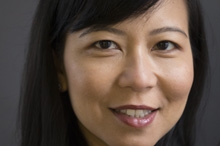
Khin Mai Aung is being honored as a Cesar E. Chavez Champion of Change.
I began my legal career in the San Francisco Bay Area during the “dot com boom” of the late 1990s, in the litigation department of a large law firm. It was a good firm and I worked on intellectually stimulating cases, but I wanted a more tangible connection to my work, and with my clients and community. I decided to take my career in a radically different path, and transitioned into a nonprofit public interest job that paid about 1/3 of my former salary.
At my new organization, I provided legal advice to indigent senior citizens at clinics throughout San Francisco. At first, the bulk of my cases involved welfare reform. Soon, rising rents led to a wave of eviction defense matters. It was rewarding to provide representation to individuals who wouldn’t otherwise have access to legal assistance, and learn from their diverse life experiences. I was in my 20s at the time, and many clients were old enough to be my grandparents. Some were immigrants and refugees from far flung places who left their homes to pursue opportunity or flee persecution. Others were native-born Americans who were relocated into internment camps as children during World War II. They all had interesting stories to tell.
Eleven years ago, I moved to New York City to launch the Asian American Legal Defense and Education Fund’s (AALDEF) Educational Equity Program. My work now encompasses a myriad of issues in kindergarten through 12th grade and higher education, representing and advocating for students, parents, and teachers in matters like obtaining programmatic access for English Language Learners, combatting anti-immigrant and anti-Asian harassment, and promoting school integration and diversity. My clients are different now – teenagers and adults – but I still learn from their experiences. I am grateful for the opportunity to partner with immigrant Chinese students to battle bias-based harassment, and with teachers who risk their jobs to report problems at their schools.
One of my most memorable cases involved representing a group of veteran teachers in Lowell, Massachusetts who were fired for failing a faulty mandatory English proficiency test. My clients, who hailed from Cambodia, Laos, and Puerto Rico, spoke fluent but accented English. The school district perceived them as deficient on account of their accents and national origin. Our work uncovered critical flaws in the fluency test and testing conditions, and my clients were ultimately reinstated with full back pay and benefits.
In the course of proving our case, I learned a lot about service and community from that group of teachers. Witness after witness came forward to testify that far from being deficient, my clients were assets to their schools. One was a volunteer sports coach, and another helped out with delinquent youth. All were exemplary role models for their students, most of whom came from working class immigrant and refugee families.
My life would never have intersected with any of these individuals had I remained in private practice. I am grateful for the opportunity to meet them, and honored to have served and learned from them.
Khin Mai Aung is the Director of the Educational Equity Program at the Asian American Legal Defense and Education Fund (AALDEF), where she advocates for the rights of Asian American and Pacific Islander students, parents and teachers. In particular, she focuses on concerns faced by immigrant students, English Language Learners, and students from lower income communities.
Learn more aboutWorking on the Frontlines of Humanity
Posted by on April 4, 2014 at 9:31 AM EST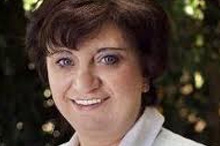
Nahla Kayali is being honored as a Cesar E. Chavez Champion of Change.
Dr. Martin Luther King Jr. said “You only need a heart full of grace. And you can be that servant.” My passion to serve humanity runs through my veins. To serve humanity is not dictated by the color of your skin, the credentials you hold, or the amount of money you make; it’s a blank passport. All you need is love, which is universal. I have dedicated my life to serving my community and working to ensure it has the resources to thrive. Thus, I am honored to be a White House Champion of Change.
It was during my divorce as I was trying to rebuild my life that my story of service begins. During my quest to enroll my daughter in health insurance, I learned about the Children’s Health Insurance Program (CHIP). Concerned for my child’s health, I right away enrolled my daughter in CHIP. I then asked myself—does my community know about CHIP?
I knew my community was underserved and didn’t have access to many resources so I made it my mission to start helping my community and that began with starting a non-profit agency. While my daughter enjoyed story-time at the library, I read piles of books on how to start a non-profit. As a single mom, immigrant, and with no education beyond the 8th grade, I came across challenges that discouraged me from pursuing my dream, but my guidance from Allah and love for humanitarian work reminded me that my destiny is to start an organization to serve my community.
Access California Services (AccessCal), a non-profit community-based culturally and linguistically competent family resource center, came to life in 1998. I received a $2,000 grant from Community Action Partnership of Orange County and worked out of a one-room office using a folding table and telephone I brought from home. I was the organization’s first volunteer. My first task was to outreach and enroll underserved children in CHIP.
Through this program, I learned that the community needed much more than health coverage. I collaborated with the community to implement a needs assessment that surveyed 200 families. Through the assessment, I determined what other services were needed, and with that, our organization grew. Today AccessCal provides 12 programs including health access, mental health, employment services, immigration and citizenship services.
It’s been 15 years since AccessCal was established. AccessCal is my second home. When I walk down the hallways of the organization and see our refugee and immigrant clients crying tears of joy—it becomes my joy. When Khalid got his first job as a lab technician to help him put food on the table for his kids, when Fatima pledged allegiance to the flag and became a registered voter, when Sarah got health coverage to address her cancer diagnosis, when Nasser learned how to speak English to speak to his grandkids, when Mariam and Saeed saved their marriage after receiving counseling, and when Faisal learned to type a resume after taking our computer classes, I was reminded we have the capacity to change lives.
It’s an honor to have AccessCal recognized at the government level. Through grants at the federal, state, county, city, and foundation level and with the in-kind support of volunteers, community members, advocacy organizations, and business owners we are able to continue the work we are doing—which is serving humanity.
Nahla Kayali is the Founder and Executive Director for Access California Services, a non-profit community-based family resource center dedicated to providing Arab-Americans and Muslim-Americans in Southern California with culturally and linguistically competent health and human services.
Learn more about
- &lsaquo previous
- …
- 34
- 35
- 36
- 37
- 38
- 39
- 40
- 41
- 42
- …
- next &rsaquo


Twitter